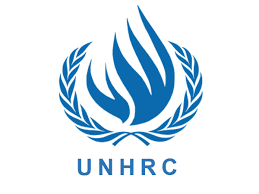
United Nations Human Rights Council (UNHRC)
United Nations Human Rights Council (UNHRC)
India’s Seventh Term and Global Commitment
IntroductionIndia’s recent unopposed election to the United Nations Human Rights Council (UNHRC) for the 2026–2028 term marks a significant milestone in its diplomatic and global human rights engagement. This will be India’s seventh tenure on the Council, reflecting its growing stature in multilateral forums and its steadfast commitment to promoting human rights across the globe. The UNHRC serves as the United Nations’ primary intergovernmental body dedicated to protecting and advancing human rights, providing a platform for constructive dialogue, global oversight, and coordinated action. India’s continued membership underscores its resolve to uphold universal human rights values while contributing to global peace, justice, and inclusive development.
Overview of the UN Human Rights Council
Established in 2006 through UN General Assembly Resolution 60/251, the UNHRC replaced the earlier Commission on Human Rights to improve credibility, transparency, and effectiveness. Headquartered in Geneva, Switzerland, the Council functions as the UN’s central forum for human rights monitoring, guidance, and capacity building. It collaborates closely with the Office of the High Commissioner for Human Rights (OHCHR) to address both thematic and country-specific concerns. By fostering engagement among governments, civil society organizations, and NGOs, the UNHRC facilitates global dialogue on emerging human rights challenges, from conflicts to socio-economic rights, gender equality, and digital governance.
Functions and Mandate
The UNHRC operates through a wide range of mechanisms to uphold global human rights standards. The Universal Periodic Review (UPR) is a core process that examines the human rights records of all UN member states on a cyclical basis, ensuring accountability and transparency. Additionally, the Council appoints special rapporteurs, working groups, and independent experts to examine specific themes or country situations, such as freedom of expression, rights of women and children, and protection against torture. The Council also initiates fact-finding missions and commissions of inquiry to investigate reported violations and adopts resolutions and recommendations to address urgent human rights crises. Beyond enforcement and investigation, the UNHRC provides a forum for dialogue, encouraging consensus-building and knowledge exchange among states and civil society to strengthen adherence to universal human rights norms.
Election Process and Regional Representation
The UNHRC is composed of 47 member states elected by the UN General Assembly for staggered three-year terms to ensure continuity and rotation. Seats are allocated based on regional groups: Africa (13), Asia-Pacific (13), Latin America and Caribbean (8), Western Europe and Others (7), and Eastern Europe (6). Elections are conducted through a secret ballot, with eligibility requiring that states uphold high human rights standards and participate constructively in Council activities. Members are limited to two consecutive terms to promote diversity and fresh perspectives in deliberations. The Council’s design ensures that regional representation is balanced while enabling a broad spectrum of voices to influence the global human rights agenda.
India’s Membership History and Contributions
India has participated in the UNHRC six times prior to its upcoming term, serving in 2006–2007, 2011–2014, 2014–2017, 2017–2020, 2022–2024, and now 2026–2028. Its repeated membership reflects international recognition of India’s democratic principles, pluralism, and constructive engagement in multilateral forums.
During previous tenures, India has emphasized human dignity and equality, advocating for inclusive growth, poverty alleviation, and socio-economic rights. It has championed gender empowerment, including initiatives to strengthen women’s education, workplace equality, and safety measures. India has also addressed emerging areas of human rights, such as digital and data rights, privacy protection, and cybersecurity, highlighting the need to adapt human rights frameworks to technological realities. Moreover, India has consistently worked to enhance cooperation among Global South nations, ensuring that developing countries have a meaningful voice in shaping international human rights norms.
Significance of India’s Election to the UNHRC
India’s unopposed election signifies strong diplomatic endorsement and broad international confidence in its leadership and collaborative approach. Its presence on the Council positions India as a voice of balance, mediating between developed and developing nations, and fostering consensus on complex human rights issues. India’s approach prioritizes pragmatic solutions, inclusivity, and cultural sensitivity, providing a bridge across divergent perspectives. Furthermore, India’s engagement is expected to advance transparency and accountability within the UNHRC while reinforcing principles enshrined in its own constitution, such as justice, equality, and human dignity. By contributing actively to global deliberations, India enhances its role as a responsible and constructive actor in the international system.
Challenges and Opportunities Ahead
India’s tenure comes with the dual challenge of addressing global expectations while navigating complex geopolitical dynamics. Critical issues include climate justice, sustainable development, digital governance, and the protection of marginalized communities. As a diverse and rapidly growing democracy, India is uniquely positioned to advocate for inclusive policies and practical solutions that can be adopted globally. Opportunities lie in fostering partnerships with other member states, civil society organizations, and UN agencies to strengthen human rights frameworks, monitor compliance, and improve responsiveness to crises. India’s leadership can also promote innovative mechanisms to reconcile economic development with social and environmental rights, demonstrating that growth and human rights protection are mutually reinforcing.
Conclusion
India’s election to the UNHRC for 2026–2028 reaffirms its role as a democratic nation committed to upholding human rights and multilateral engagement. Beginning its tenure on January 1, 2026, India will advocate for a balanced, dialogue-driven approach, emphasizing both universal human rights principles and the perspectives of developing nations. Its participation strengthens India’s global influence, enabling it to shape debates on human rights, gender equality, digital governance, and sustainable development. Through proactive engagement, India contributes to building a more equitable, inclusive, and peaceful international order, reinforcing the UNHRC’s mission of protecting human dignity and promoting global justice.